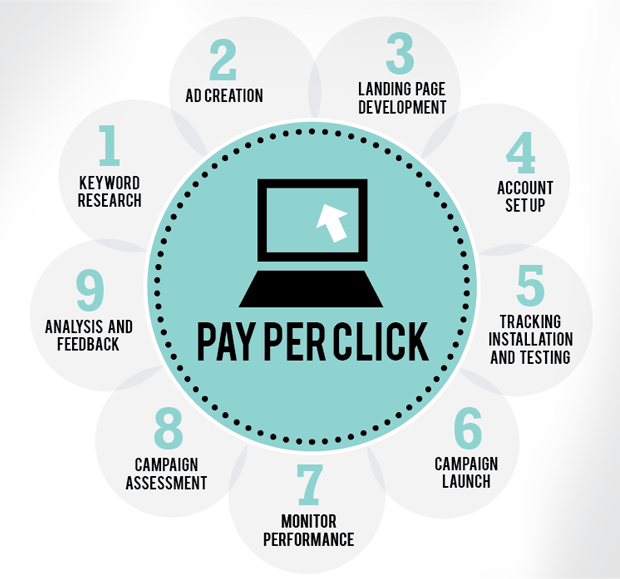“Should we invest in SEO or in PPC?”, “What percentage of our budget should we set aside for SEO?”, “Are we investing sufficiently in organic compared to paid search?” – these are questions most digital marketing managers ask at one point or another. Here’s how advertisers can find the right split between investment in organic and paid search.
Example 1: Established business with steady traffic

When growth is important, the best strategy is to maximise reach, which can be achieved by targeting the largest possible audience via both paid and organic search.
Identifying paid search spend in this situation is easy. It is the amount that Google recommends in the AdWords campaign tab or the spend needed to secure 100% impression share on all profitable search campaigns.
The rest of the search marketing budget should be invested in improving organic visibility.
Now, if the amount of budget that’s left for SEO isn’t quite enough, then the correct approach is to re-evaluate the budget. If the paid search campaigns are profitable, there is really no reason why a business shouldn’t continue investing in them to the maximum possible level while maintaining profitability.
Keeping in mind, then, that organic search drives 50-75% of total search traffic, the budget apportioned for that activity should be equal to or 1.5 times as much as the paid search budget multiplied by the comparative profitability of an organic search click.
Example 2: Start-up with a brand new website

When speed of returns is important, the only reliable option is advertising.
Ethical search engine optimisation can take long – 6-12 months for a brand new website to deliver significant, reliable results – we’re not talking about just an initial blip accompanying the new site launch PR, which then fades away, but a steady growth in organic presence and referred traffic.
For the first 3-6 months, 100% of a start-ups budget should typically be allocated to paid search. Profits or returns from paid search activity can then be accumulated and invested in organic search marketing. A graph of the paid and organic search marketing spend should look like this:
Example 3: Established business with mostly branded traffic

When driving growth by maximising reach, the strategy should once again be to target the largest possible audience via both paid and organic search.
Here too, the split between organic search and paid search should reflect the 50-75% share of organic search compared to total search activity. The only difference here will be that instead of simply multiplying the organic search share by the comparative profitability of an organic search click, businesses should also consider the value of brand impressions gained through an organic search presence – which can make organic clicks as valuable as ad clicks, even if they don’t convert into sales as well.
When building and protecting the brand, the strategy should be to ensure that the brand gets prime visibility in search results and to manage the brand’s reputation, especially on the first page of organic search results.
An additional budget needs to therefore be allocated to bidding on the brand and any associated brand terms. This is especially important in industries where competition is stiff and competitors as well as suppliers and distributors are likely to bid on the brand, thereby pushing the brand owner’s presence lower in the search results.
About the Author
AccuraCast is a digital marketing agency focused on international growth. Founded in 2004. Specialists in generative AI engine optimization, social media marketing, search and programmatic display advertising and search engine optimisation in all major global languages to businesses worldwide. Offices in London, New York and Madrid.

![Splitting Your Budget Between SEO & PPC [With Examples]](https://www.accuracast.com/wp-content/webp-express/webp-images/doc-root/wp-content/uploads/2015/07/budget-split-1.jpg.webp)










